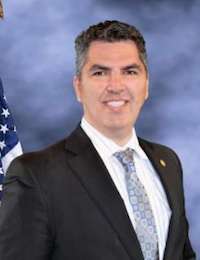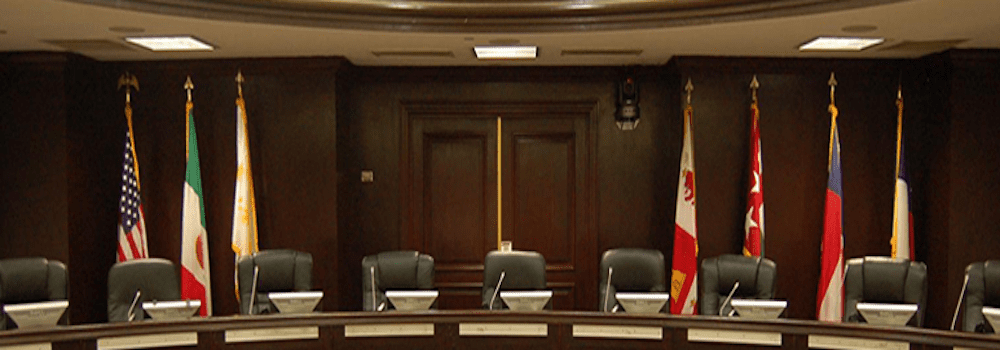The city of Laredo continues to be rife with public corruption as two local officials entered a plea deal with the United States Department of Justice on conspiracy to commit federal program bribery. Webb County Commissioner and Laredo Metropolitan Planning Organization representative Jaime Alberto Canales, and former Laredo City Councilman and Laredo ISD Board Member John “Johnny” Amaya pleaded guilty Thursday before U.S. Southern District Magistrate Sim Lake.

Jaime Canales
How much does it take to bribe a commissioner in Laredo? In South Texas, the going rate is about $15,000. In this case, “things of value”—disguised as campaign contributions and personal loans, condo stays at South Padre Island, and food and entertainment—is the price of bribing an elected official.
Hours before the plea deals were released on Thursday, Canales resigned his position as Webb County Commissioner Precinct 4.
Canales admitted that between January 2015 to January 2017, he would accept things of value with the intent to assist using his elected position. In doing so, he used his position to place a bid on the Commissioners Court agenda and also voted for the Hachar-Reuthinger Road project, which cost taxpayers $4.6 million.
Amaya, who was employed by a co-conspirator as a consultant for “Corporation A,” admitted that between 2011 and 2017 he used his position to influence other Webb County and Laredo officials, including Canales. He confessed he would act as a middleman between conspirator and public officials and would pay them with cash, meals, and “campaign checks.”

John “Johnny” Amaya
During the 2016 presidential election, under the conspirator’s direction, Amaya supported certain candidates and provided car rentals and transportation of voters to the polls.
Last April, Amaya was targeted during the FBI raids linked with Dannenbaum Engineering Corp., Laredo City Hall, and Webb County Courthouse. This isn’t Amaya’s first encounter with the law: in 2015 he was indicted and found not guilty for tampering with government documents and he engaged in organized criminal activity. Amaya, who was Webb County’s Water Utilities Director, was investigated along with seven others for falsifying daily and monthly water quality reports at the Rio Bravo Water Treatment Plant.
The Texas Commission on Environmental Quality discovered 30 violations at this plant, including E. coli in the drinking water, forcing citizens of Rio Bravo to boil their water.
On Friday morning, Webb County Judge Tano Tijerina pledged to end corruption in Laredo:
“While many candidates focus a lot of time, money, and energy trying to win that position of power; some don’t know how to handle the position once they are elected. I pledge to you, Webb County, to continue to hold elected officials to a higher standard and do my part to end corruption. It is finally time to end the corruption that lurks in shadows of Webb County government. This is a clear victory for Webb County and serves as a warning that things done in darkness will be brought into the light. This is the time, more than ever, for our community to come together in unity and pray for our leaders, to hold them accountable, and to rise above our past and look forward to a future of better government.”
Sentencing has been set for February 14. These former Webb County and Laredo City Commissioners could face up to five years in prison.




